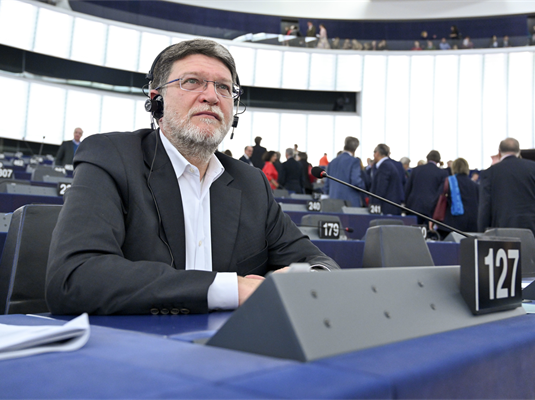"First of all, I want to express my condolences to the families of the victims of the crash of the Ukrainian passenger plane in Iran. It is a tragic reminder that isolated incidents can endanger overall security. I support full access to the investigation of investigators from all countries whose citizens are victims of this tragedy. The underlying message should be a call to de-escalation of conflicts and refraining from unilateral actions as they have a multiplying effect on regional, as well as global security.
The murder of General Suleimani, regardless of his actions related to the crimes with numerous victims, opened a pandora's box with unprecedented consequences. The upcoming elections in Iran and the US, unfortunately, present an additional challenge. I hope that the latest controversy over the withdrawal of US troops from Iraq will not cause new conflicts and casualties.
Equally, full support for the Iran nuclear deal entails realizing the commitments made, including INSTEX, especially in the context of humanitarian trade. The EU needs a proactive policy, proposing diplomatic solutions that must aim at Iran's compliance with the nuclear agreement. So it really contributes to maintaining peace and promoting security. Iran certainly needs to stop the violence against protesters, as we have witnessed in recent days. In conclusion, I believe it is time to discuss transatlantic co-operation in the next sessions in significantly changed context. It is an indispensable part of the formula for global security and peace", said MEP in his speech at the Strasbourg plenary session.
"We have witnessed an agreement between Libya and Turkey that directly violates international maritime laws and the sovereignty of third countries, and Turkey, formally a NATO ally, is again negotiating actions in our immediate neighborhood. In Libya, opposing parties, Russia and Turkey have tried to establish their positions and to arrange a ceasefire, but that attempt has failed today.
At the same time, EU members are still failing to find a common policy towards Libya and a coordinated response to this crisis. It should be made clear that military interventions cannot resolve the chaos in Libya. Our policy towards Libya cannot even be reduced to migration policy. The EU and the geopolitical Commission need to take a more active and productive role, especially in the immediate neighborhood. The Berlin process and cooperation with the UN are a path that needs to be supported", said Picula.


